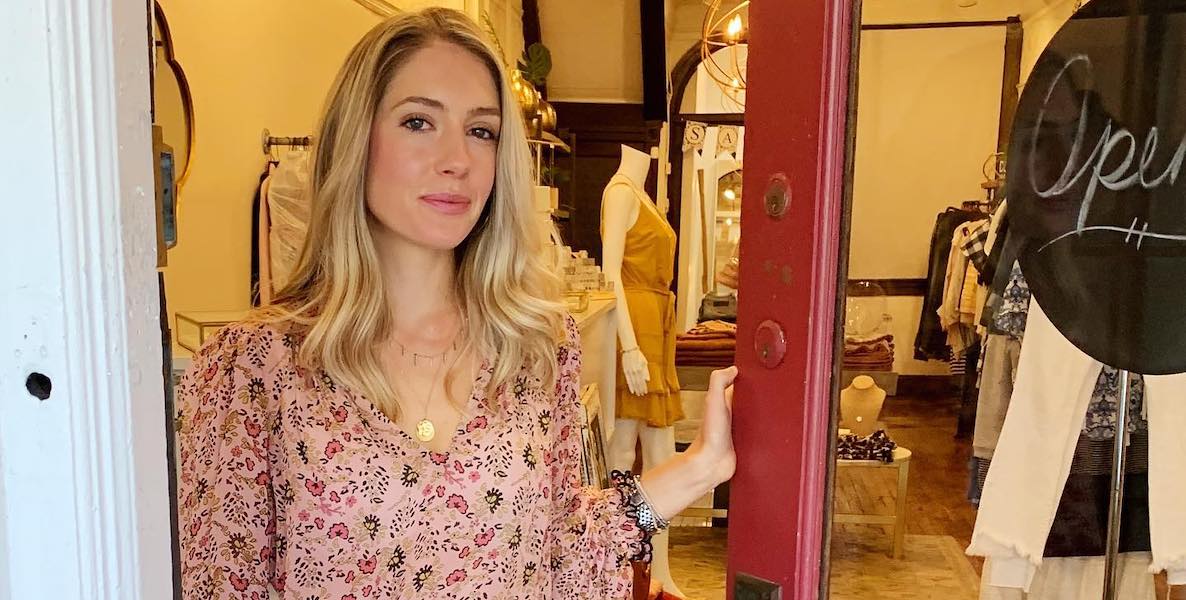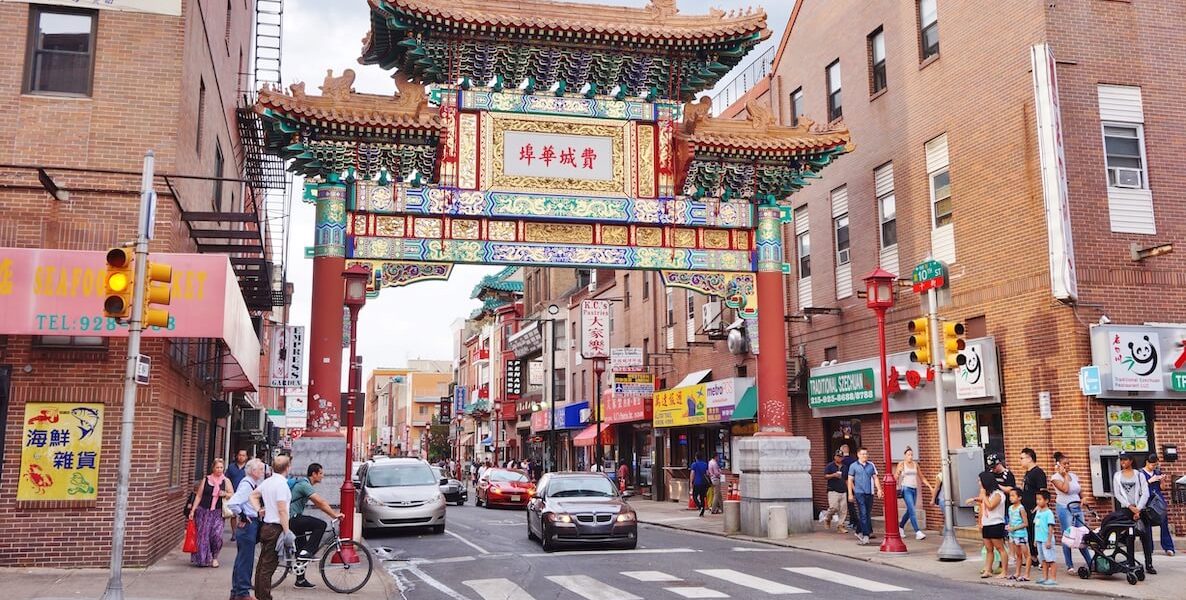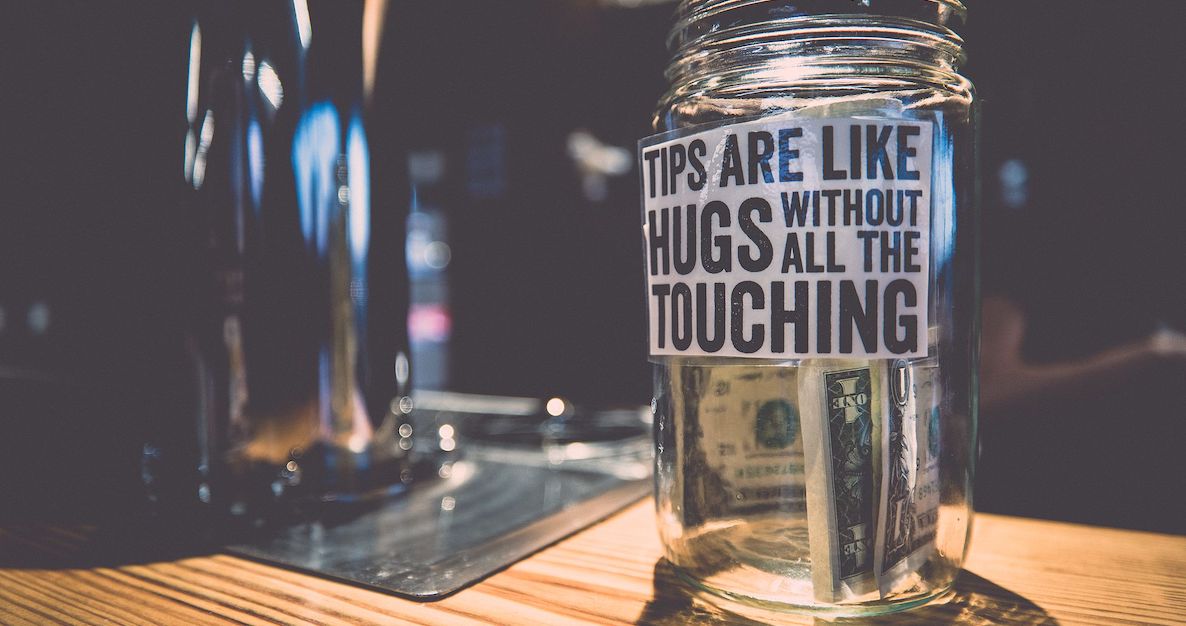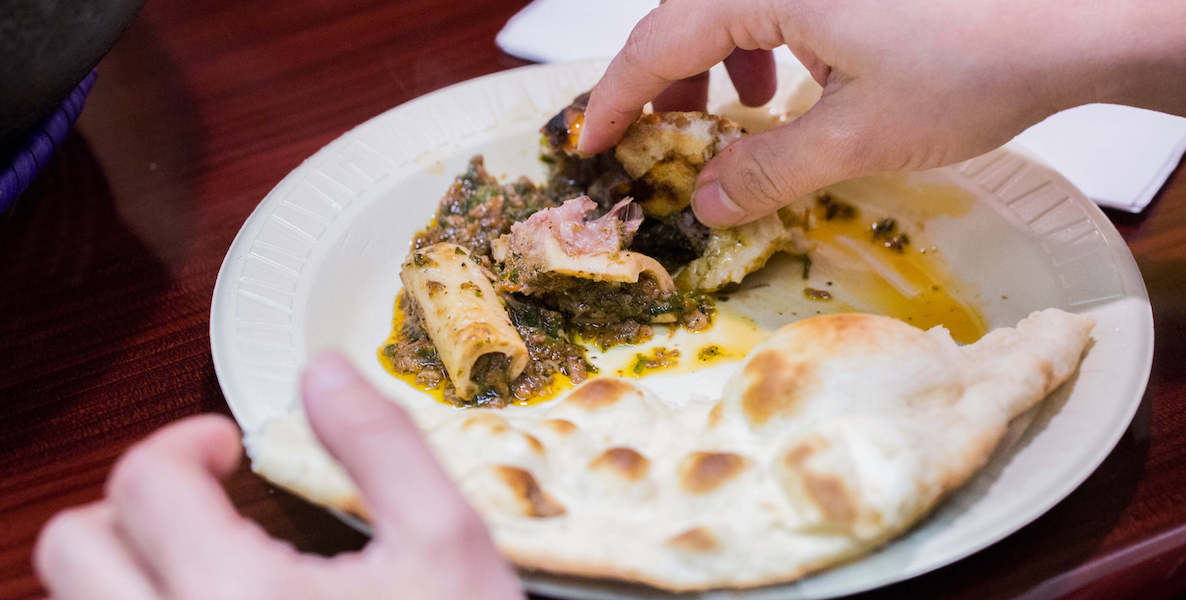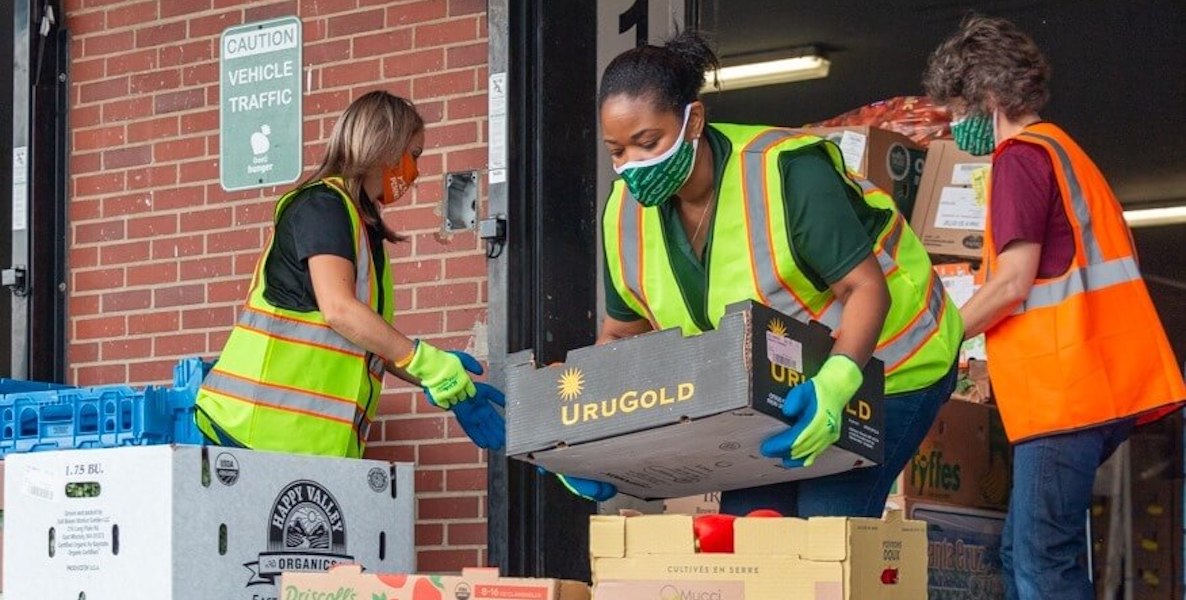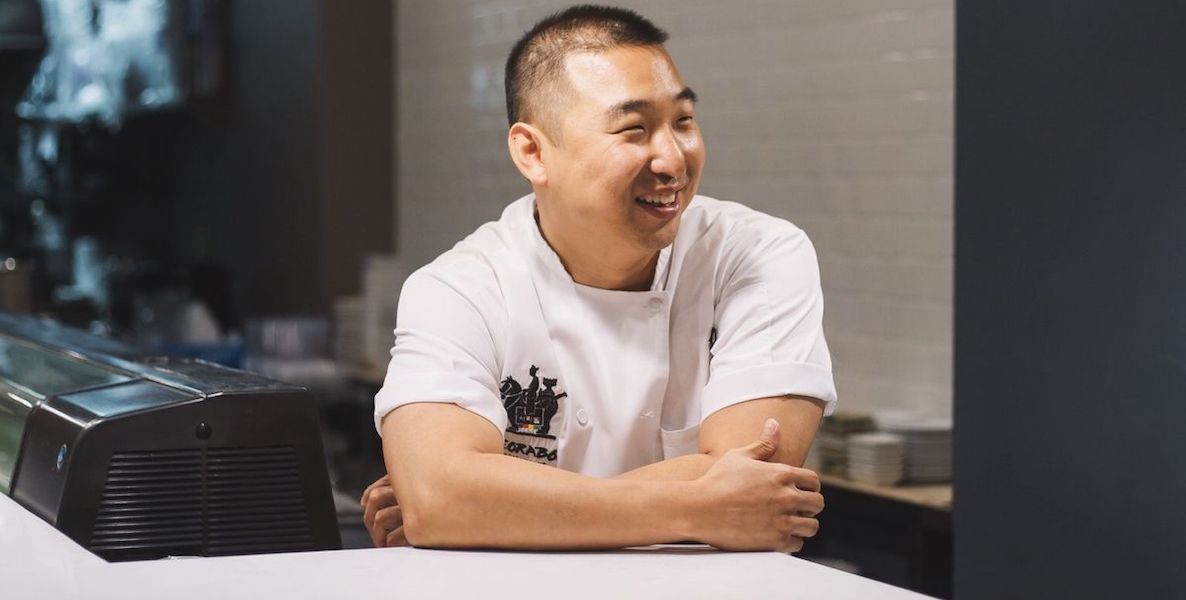to this story in CitizenCastListen
Around the same time, up in New York City, law student Winn Periyasamy and her friends grabbed dinner in Manhattan’s Chinatown, for all the same reasons.
But it wasn’t long until the crew, a group of self-described policy advocates, began hatching a scheme. What if they organized a food crawl to bring business to Chinatown while also raising awareness about emerging racism and xenophobia?
Dubbed “Dumplings Against Hate” and held on February 17, the event was a rousing success—so much so that it spawned a follow-up food crawl four days later in Sunset Park. But just as Periyasamy and her fellow organizers began planning more events, the city shut down.
That’s where Amy Zhang comes in. A native of Hong Kong and a segment producer for Netflix’s Patriot Act with Hasan Minhaj, Zhang is passionate about civic engagement, especially in Asian-American communities. When she saw Whitney Hu, a candidate for City Council in Sunset Park, tweeting about loss of business in Chinatown, she messaged her and asked how she could help.
Turns out, Hu is a member of Periyasamy’s organizing group. Hu invited Zhang Support Philly's ChinatownDo Something
The team loved the idea, and thus, “Dumplings Against Hate” went digital. The website links to a GoFundMe that directs donations to Asian Americans for Equality’s (AAFE) Emergency Small Business Relief Fund. The fund is distributed to businesses in all nine of New York City’s Chinatowns.
“Chinatowns have always been there for you,” the GoFundMe description reads. “When you were drunk at 3 a.m. and desperately needed dumplings, that restaurant was always open. And when you needed a brunch place for nine friends, you knew that dim sum place had it covered. Now, will you show up for NYC’s Chinatowns?”
Be Part of the Solution
Become a Citizen member.Donors choose the amount they want to give by ordering pretend “meals” at different price points. Each meal is accompanied by an illustration designed by the organizers’ artist friends. The cheapest option, “Har Gow,” or shrimp dumplings, comes to $5, while the priciest, “The Banquet,” totals $50. Donors can also type in a custom amount on the GoFundMe page.
In moving the campaign online, Zhang and the other organizers still wanted to maintain one of the main motivating factors behind the original food tour: community-building.
To do so—and to provide an additional incentive to contribute—the group set up a “Saturday Night Dinner” over Zoom. Anyone who donates is sent a link to join and encouraged to buy takeout or delivery from their local Chinatown so they can share a virtual meal with friends and strangers.
“Obviously being stuck in quarantine is kind of lonely,” Zhang says. “So we wanted people to get more out of it, other than it just being a fundraiser.”
To promote the campaign, the participating artists designed shareable graphics that supporters are encouraged to post on social media, along with the hashtags #DumplingsAgainstHate, #DineInChinatown and #SaveChinatown.
The site launched on March 20—and immediately caught fire. In its first 12 hours, it raised $7,000 and was shared widely on social media. The GoFundMe goal is currently set to $50,000—a cap that will likely need to be raised again, since total donations have already crept past $30,000. It even got a Twitter shoutout from celebrities like actress Piper Peravo and comedian Ronny Chieng.
“I think we were all really shocked at how fast it picked up steam,” Zhang says. “We set the cap on GoFundMe to $1,000 because we were like, if we made $1,000, that’d be pretty great. We kept having to raise the cap because the donations were coming in so fast.”
“Chinatowns have always been there for you,” the description reads. “When you were drunk at 3 a.m. and desperately needed dumplings, that restaurant was always open. And when you needed a brunch place for nine friends, you knew that dim sum place had it covered. Now, will you show up for NYC’s Chinatowns?”
In Philly, Anna Perng, a Chinatown resident, independent activist and co-founder of the Chinatown Disability Advocacy Project, is talking to the New York group to figure out how to get a Philly version off the ground. She hopes the campaign will help draw attention to the fact that the city’s Asian-American community is being left behind in efforts to fight the coronavirus.
According to 2019 Census data, Asian Americans and Pacific Islanders account for approximately eight percent of Philly’s population, totaling over 100,000 people. As of 2016, around 2,000 of those people lived in Chinatown, which is home to over 400 businesses.
Report an incidentDo More
Asian-American residents here have also seen their fair share of Covid-related harassment. Philadelphia Chinatown Development Corporation (PCDC)—the same organization that extended that lunchtime invitation to Mayor Kenney—has been collecting incident reports through a Google form and posting anonymous accounts on its Facebook page.
“I’m a domestic worker. On March 26, I took a bus home after work,” one such account, translated from Chinese, reads. “A man on the bus yelled at me and pretended coughing towards me. My English is not very good but I heard ‘dirty,’ ‘virus’ and ‘Chinese.’ He followed me after I got off the bus and kept yelling at me. I was traumatized by this.”
Yue Wu, community planner and neighborhood advisory committee coordinator for PCDC, says about two dozen reports have been submitted so far.
Through her support group, Perng has heard reports from people who have been harrassed while venturing out for groceries. As a result, they aren’t utilizing City services they need, like free food programs and printed learning guides.
“Those who are essential business owners—like laundromat or corner store owners—are afraid for their safety,” Perng adds. “Before gun stores closed, they saw people lining up to buy guns and they expressed fears that the guns would be turned on them.”
Meanwhile, in New York City, the Dumplings Against Hate team is planning bigger and more ambitious virtual events, to raise funds and awareness about the need for tolerance and solidarity during the crisis.
At their first Saturday Night Dinner, on March 21, according to Periyasamy, people came and went, but approximately 25 diners were on the call at a time. Guest speakers included AAFE’s executive directors Jennifer Sun and Thomas Yu and New York State Assemblymember Yuh-Line Niou, who joined to speak about the economic hit that Chinatown businesses have taken, as well as the racism and implicit bias the Asian American community has endured.
Last week, Zhang and two of her coworkers from Patriot Act—showrunner Prashanth Venkataramanujam and lead animator Brandon Sugiyama—hosted a panel discussion and Q&A about the process behind the show. All donors who contributed $25 and more were invited to join.
Zhang says the campaign is also hoping to enlist the help of famous Asian-American chefs to host virtual cooking lessons, workshops and other webinars.
And the idea is spreading. A friend of Zhang’s started an offshoot, called Save Our Chinatowns, for the Bay Area in California. Its funds will be split between Chinatown Community Development Center in San Francisco and Chinatown Improvement in Oakland.
To keep that momentum going, NYC’s Dumplings Against Hate team is working on creating a “how-to” toolkit that gives detailed instructions on how other cities can get their own campaigns off the ground.
“I think it’s very creative and apparently it’s very effective in using the funds for supporting the small businesses,” PCDC’s Wu says of the campaign. “I think it’s a really good idea. And I think any resources will help.”
As much as she’d like to see Dumplings Against Hate take off in Philadelphia, Local businesses More ways to support
Perng has heard the same from other other Asian American organizations in the city, as well, many of whom have applied to the PHL Covid-19 Fund, a private-public grant program meant to support nonprofits serving distressed communities during the pandemic. However, they have yet to get the funding they need.
Still, she hopes to find a way to launch Dumplings Against Hate in Philly with the help of AAFE.
And she has an eager partner in Periyasamy. As a native of Wilmington, Delaware, Philadelphia is a city that’s close to Periyasamy’s heart.
“I hope Philly starts one,” she says. “We would love to be able to support a Dumplings Against Hate, Philadelphia edition.”
Photo courtesy Visit Philadelphia


